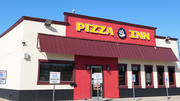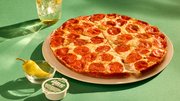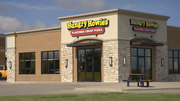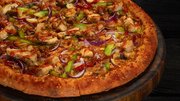News
'Responsibly sourced, low-waste' product line available from US Foods
June 14, 2016
Momentum is growing daily in the nation's push for better foods that come from responsibly sourced providers. Just this week, food service industry supplier, U.S. Foods, announced that it has created a new line of items that speaks directly to this increasing consumer demand. The Serve Good line includes cage-free eggs, organic bread, non-GMO oils and sustainably produced seafood.
"The demand for sustainable options when dining out continues to grow," said U.S. Foods Vice President of Product Development and Innovation Stacie Sopinka. "In fact, nearly 70 percent of diners say they would have a better impression of a restaurant that offered sustainable foods. With the high-quality, on-trend and sustainable items in Serve Good, we can help our customers deliver what their diners want and stay competitive in this changing marketplace."
The new line features 21 products, which are either responsibly sourced or help reduce waste, according to a news release. The company said research indicates that 82 percent of consumers want antibiotic-free meat and poultry, while sustainably produced seafood is among the top trends in food service today. To meet that demand, the company introduced turkey breast meat products from birds that were raised with vegetarian food sources and without antibiotics. Other products in this category introduced include sustainably sourced, ocean-farmed whitefish and expeller-pressed, zero trans fat, non-gmo canola oil.
US Foods, according to the release, hopes the line will help cut discarded or unused food in the U.S., which is now estimated to be about 40 percent of all that is produced. In fact, U.S. Foods said its research indicated that $218 billion is spent annually to create and distribute food that's never eaten.
In response to those findings, U.S. Foods introduced a chopped broccoli leaf product that capitalizes on this so-called "super food" while simultaneously increasing the yield for farmers per acre by some 2,640 pounds. Other products in the waste reduction line include an eggless vegetable protein spread that requires up to 10 times less water and one tenth of the land to produce over other protein sources. And lastly, the company introduced this week its reusable travel cups, meant to address the problems of our throw-away culture where 14 billion paper coffee cups alone end up in the landfill and elsewhere annually.
Part of the problem, according to U.S. Foods representatives, is that most cups that consumers think are recyclable aren't because they contain non-recyclable polyethylene. U.S. Foods new cup line is made with a verified recyclable material, polypropylene, which is also BPA-free, according to the release.
 ChatGPT
ChatGPT Grok
Grok Perplexity
Perplexity Claude
Claude








